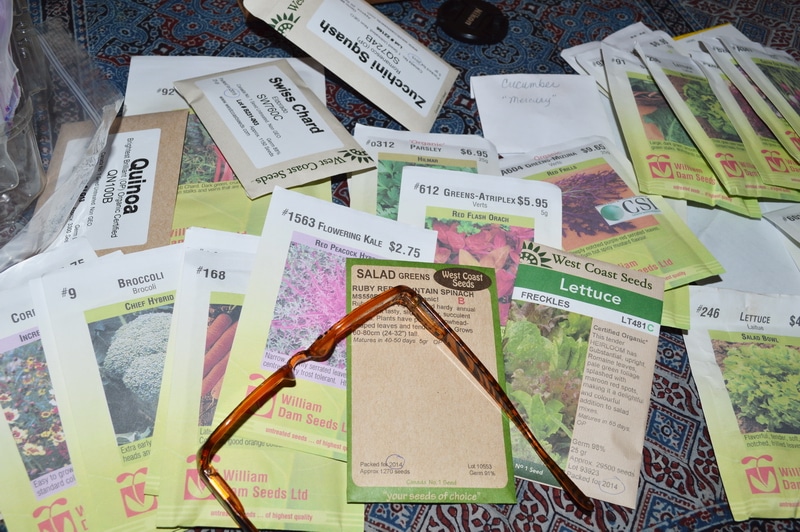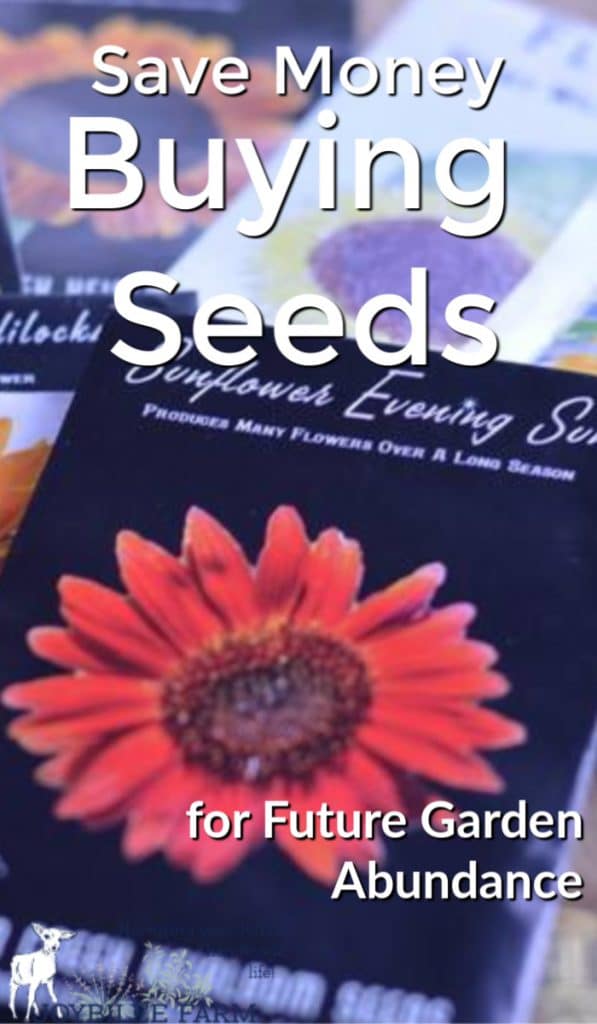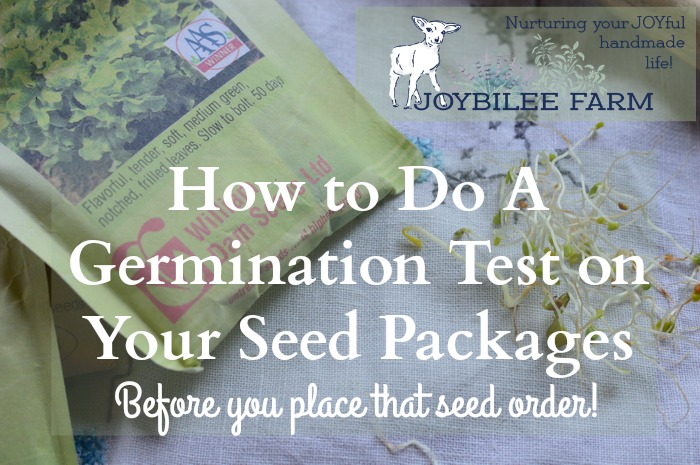Use these four rules for purchasing seeds and plan for future garden abundance. You can save money while buying vegetable seeds.
Many vegetable seeds are priced like precious metals — several dollars for just a few seeds. Hybrid seeds are usually more expensive than open-pollinated varieties. Both will give you vegetables for your table. Open pollinated varieties are what you want if you plan to grow and save your own seed. Hybrid seeds are used for commercial production because they give more uniform results with a predictable harvest window. For home production the variation provided by open pollinated seeds and the genetic diversity offered may be beneficial, giving you a longer harvest period with more variety in the crop.
Difference Between Hybrid Seeds and Genetically Modified Seeds
Hybrid seeds are not the same as genetically modified (GM) seeds. Hybrid seeds have been cross-pollinated naturally, by wind, insects or hand, to produce offspring with increased vigor that shows the desirable traits of two parent species. They are more expensive to purchase, in most cases, because of the extra cost of R&D and the attention and time given to testing new varieties. A hybrid seed has to be grown out fresh from the same parent plants each season to produce more hybrid seed.
Contrary to folk wisdom, you can get viable seed from hybrid plants — but the offspring revert back to the traits of the original parent plants — which may or may not be desirable. Growing out hybrids over several generations will give you back the open pollinated parents.
GM seed has been genetically altered in a laboratory by the insertion of a foreign gene into the DNA of the seed. Avoid GM seed. The long term effects have been shown to be negative to the environment and to humans, livestock and bees ingesting the plants. You don’t want to plant GM seed in your garden or save seed from plants that have been exposed to GM pollen from the same plant family. It is actually illegal to save GM seed since the manufacturer owns a patent on them.
Avoid seed treated with fungicides. The seeds are poisonous and introduce poisons to your garden soil.

Seed Storage
Vegetable seeds are usually less expensive by weight if you purchase in larger packages — enough for several years of gardening. But seeds being living organisms, tend to lose viability in storage over a period of time.
I generally buy more seeds than I need and store the excess in a cool room. This lessens the annual Spring outlay for garden seeds and gives me a better value for the seeds I do buy, in some cases. Hybrid seeds, that are sold by the seed, instead of by weight don’t necessarily follow this rule.
I save the cardboard cocoa containers or crystal drink containers (begged from friends), with plastic snap lids for seed storage. I put dry, clean, kitty litter in the bottom of the container to absorb excess moisture, and then place my seed packets in the containers and put on the lid. I have a separate container for different types of seed (cucurbits, cole, greens, herbs, flowers, solanums, etc.) so that I can find them easily — a seed filing system. Then I store these containers in a box on the shelf of my cool room — where my jams, jellies, and canned tomatoes are.
When you bring home your seed packages or get them in the mail, mark the year on every package. This will help when you check for germination potential years from now.
Shelf Life of Seed
Seeds have different storage life spans. Seeds that have a long storage lifespan of 5 to 7 years can be confidently purchased in large packages. This includes seeds from the Cole family:
- broccoli,
- radish,
- cauliflower,
- kale,
- cabbage,
- bok choy, and
- kohlrabi.
Seeds with a medium lifespan 3 to 5 years, can be purchased in smaller packages, choose enough to last 3 seasons. These seeds include:
- squash,
- cucumbers,
- melons,
- tomatoes,
- peppers,
- eggplant,
- wheat,
- oats,
- barley,
- rye,
- beans,
- peas,
- carrots,
- beets,
- spinach,
- lettuce,
- parsley
- PLUS many herbs, flowers, poppy seeds, and flax or linen.
Seeds with a short lifespan, usually only viable for one or two years like sweet corn, onions, and parsnip should be purchased in smaller quantities, so buy only enough to plant this growing year.
Germination Testing of Seed
Don’t throw out seeds that are past the “best before date”. Just check the germination by making a paper towel just barely damp with water. Put 10 seeds into the towel, fold up and place in a plastic bag to keep from drying out. Check the seeds in 7 to 10 days (or however much time is needed for germination according to the seed packet information) and count the seeds that sprout.
If more than 5 seeds sprout (a 50% germination rate) then you can plant the seed but do it more thickly than normal. If less than 2 seeds sprout you may want to buy fresh seeds in the Spring. In an emergency, you can plant these seeds but do so in pots and transplant the viable seeds into your garden, after the first 2 true leaves have emerged.
Seeds that are over 100 years old have sprouted, so if your seed is past the best before date, and getting fresh seed is difficult, try to sprout it and them transplant the live seed.
Know what seed will grow easily in your area
If you’ve never gardened before in your current climate, ask the gardeners around you what grows well for them. Contact your local garden club. Talk to the vegetable growers at your farmer’s market. Generally, the seed catalogue will tell you how many days you have from planting to harvest. It will also tell you if the plant is “hardy”, meaning it can withstand light frosts, or “tender” meaning it can’t handle cold.
Find out when the last frost date is normally for your area and when the first frost date is. The number of days between the last frost and the first frost is your growing period. If you plan to grow vegetables that need a longer growing period you will have to provide extra protection, a row cover, greenhouse, or rock wall that radiates heat at night are all viable options.
Some vegetables like corn and peppers need heat to produce fruit, not just frost-free periods. Does your climate offer the heat necessary? Learn How to Plan Your First Vegetable Garden Like an Expert.
Buying seed on sale at the end of the season
Should you buy seeds on sale now for next year’s planting? By looking at the viability periods for various kinds of seed, you can determine whether seed purchased this season for next year’s planting is a good deal or not. Onions, corn, and parsnip would lose germination over the winter, so don’t bother with them unless you are planting a fall garden in the current year. Other seed might be a wise purchase.
Only buy seed for vegetables that will grow in your area. Always test germination if you are in doubt. The window for producing food is short, so you don’t want to waste weeks waiting for what is probably dead seed to germinate.
By buying certain seeds in bulk, focusing on open-pollinated or hybrid seed, saving your own seed, and testing germination before you plant, you will save money and time and be prepared for future gardening abundance.
What tips for saving money on vegetable seeds do you use? Is there anything you can add to help our readers? Please leave a comment.
Saving Seeds: The Gardener’s Guide to Growing and Storing Vegetable and Flower Seeds (A Down-to-Earth Gardening Book)





Leave a Reply